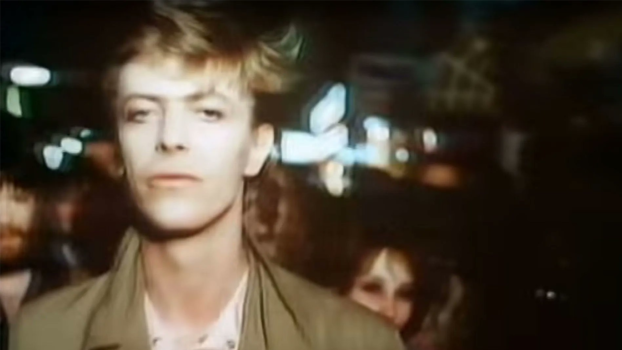Opening the second half of David Bowie’s Lodger album, D.J. was the primary in a run of 5 songs on the file to critique Western society – on this occasion, modifications in celeb tradition on the finish of the 70s. “Time flies if you’re having enjoyable,” Bowie sings on the track’s bridge, as if trying again over the last decade he’d formed in his personal picture. However whereas The Rise And Fall Of Ziggy Stardust And The Spiders From Mars had confirmed Bowie because the archetypal rock star in 1972, by 1979 a brand new sort of pop-culture icon had begun to emerge.
“You have a look at the DJ and surprise what he does, or why he turned a DJ,” Bowie stated of the track’s inspiration, in an interview with New York Metropolis radio station WNEW-FM. Imagining the nightclub disc-jockey as a lately unemployed determine each trapped by and searching for transcendence in his position as enabler of escapism, Bowie – who, born David Jones, shared his delivery initials together with his protagonist’s job title – took a have a look at fame by the DJ’s eyes. Arguably, it didn’t differ all that a lot from his personal expertise…
Take heed to the very best of David Bowie here.
The inspiration: “It was a sort of pastiche factor that one thinks up in a disco”
“That is considerably cynical, but it surely’s my pure response to disco,” Bowie stated of D.J. whereas speaking to Melody Maker journal forward of Lodger’s launch. After teams reminiscent of Bee Gees and Chic helped make disco music a worldwide phenomenon with the Saturday Evening Fever film and dancefloor-filling songs reminiscent of Dance, Dance, Dance (Yowsah, Yowsah, Yowsah) and Good Times, the style had begun to expertise a backlash: Chicago DJ Steve Dahl had launched the “Disco Sucks” marketing campaign, culminating in Disco Demolition Evening, throughout which an estimated 50,000 folks gathered at Comiskey Park baseball stadium on 12 July 1979, to burn disco data as a part of a promotional stunt between video games.
Bowie, who had embraced soul and funk music only a few years earlier with his Young Americans album, and would quickly enlist disco architect Nile Rodgers to co-produce 1983’s Let’s Dance, wasn’t about to dismiss a complete fashion out of hand. Having lately laid the blueprint for the rising new-wave scene, nevertheless, his “pure response” to disco was to create a warped dance monitor that shared extra with Talking Heads than KC And The Sunshine Band, and which scratched on the floor of the nightclub’s central determine: the disc jockey.
“It was only a type of a sort of pastiche factor that one thinks up in a disco, actually,” he instructed WNEW-FM.





